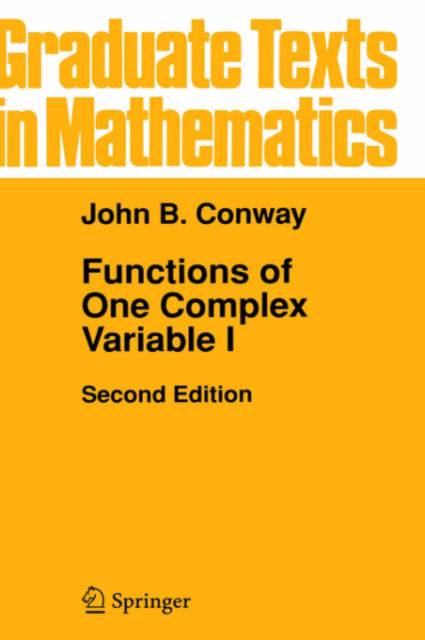
Bedankt voor het vertrouwen het afgelopen jaar! Om jou te bedanken bieden we GRATIS verzending (in België) aan op alles gedurende de hele maand januari.
- Afhalen na 1 uur in een winkel met voorraad
- In januari gratis thuislevering in België
- Ruim aanbod met 7 miljoen producten
Bedankt voor het vertrouwen het afgelopen jaar! Om jou te bedanken bieden we GRATIS verzending (in België) aan op alles gedurende de hele maand januari.
- Afhalen na 1 uur in een winkel met voorraad
- In januari gratis thuislevering in België
- Ruim aanbod met 7 miljoen producten
Zoeken
Omschrijving
This book is intended as a textbook for a first course in the theory of functions of one complex variable for students who are mathematically mature enough to understand and execute E - 8 arguments. The actual pre- requisites for reading this book are quite minimal; not much more than a stiff course in basic calculus and a few facts about partial derivatives. The topics from advanced calculus that are used (e.g., Leibniz's rule for differ- entiating under the integral sign) are proved in detail. Complex Variables is a subject which has something for all mathematicians. In addition to having applications to other parts of analysis, it can rightly claim to be an ancestor of many areas of mathematics (e.g., homotopy theory, manifolds). This view of Complex Analysis as "An Introduction to Mathe- matics" has influenced the writing and selection of subject matter for this book. The other guiding principle followed is that all definitions, theorems, etc.
Specificaties
Betrokkenen
- Auteur(s):
- Uitgeverij:
Inhoud
- Aantal bladzijden:
- 322
- Taal:
- Engels
- Reeks:
- Reeksnummer:
- nr. 11
Eigenschappen
- Productcode (EAN):
- 9780387903286
- Verschijningsdatum:
- 24/08/1978
- Uitvoering:
- Hardcover
- Formaat:
- Genaaid
- Afmetingen:
- 163 mm x 236 mm
- Gewicht:
- 635 g

Alleen bij Standaard Boekhandel
+ 110 punten op je klantenkaart van Standaard Boekhandel
Beoordelingen
We publiceren alleen reviews die voldoen aan de voorwaarden voor reviews. Bekijk onze voorwaarden voor reviews.









